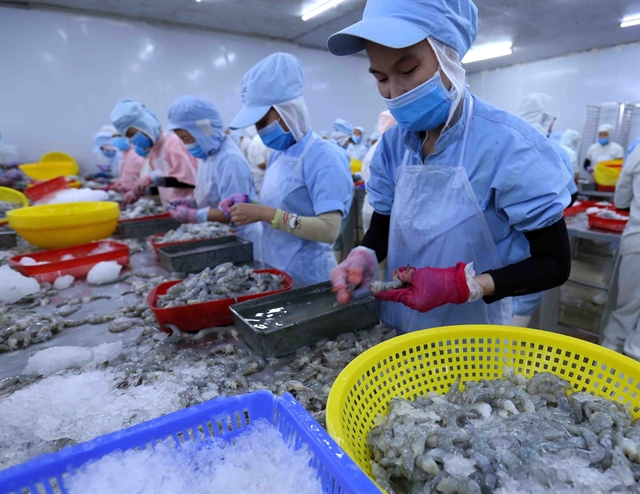 Economy
Economy

Prawn and uncooked prawn products for human consumption exported to Australia will have to follow new regulations from the Australian Department of Agriculture, Water and the Environment from July 1, according to the Việt Nam Association of Seafood Exporters and Producers.

|
| Prawn exports to Australia will have to be properly deveined under new bio-security regulations from July 1. – VNA Photo Vũ Sinh |
HCM CITY – Prawn and uncooked prawn products for human consumption exported to Australia will have to follow new regulations from the Australian Department of Agriculture, Water and the Environment from July 1, according to the Việt Nam Association of Seafood Exporters and Producers.
The regulations are designed to manage bio-security risks related to Enterocytozoon hepatopenaei (EHP), a microsporidian parasite that affects the growth rate and sizes of prawns.
The current importing requirements related to EHP for prawn products were seen as too lax.
Prawn and uncooked prawn products will have to be deveined and certified by authorised organisations. Deveining is considered the most practical and effective method to reduce the amount of EHP that may exist in infected prawns.
Customs clearance procedures in Australia will require checking of the products to ensure that packages are sealed.
Australia's model health certificate for prawns and prawn meat for human consumption has been updated with the new criteria: “Uncooked prawns have been deveined (removal of the digestive tract to at least the last shell segment)”.
The importing changes do not apply to cooked products, or to deep processed, ground or battered products, nor to prawn products originating from Australia that have been processed at Thai Union-approved facilities.
Australia is Việt Nam's seventh largest prawn importer, accounting for 3.8 per cent of total prawn export value. In 2019, Việt Nam exported over US$127 million worth of prawn to the country, a 10.8 per cent increase from 2018. – VNS